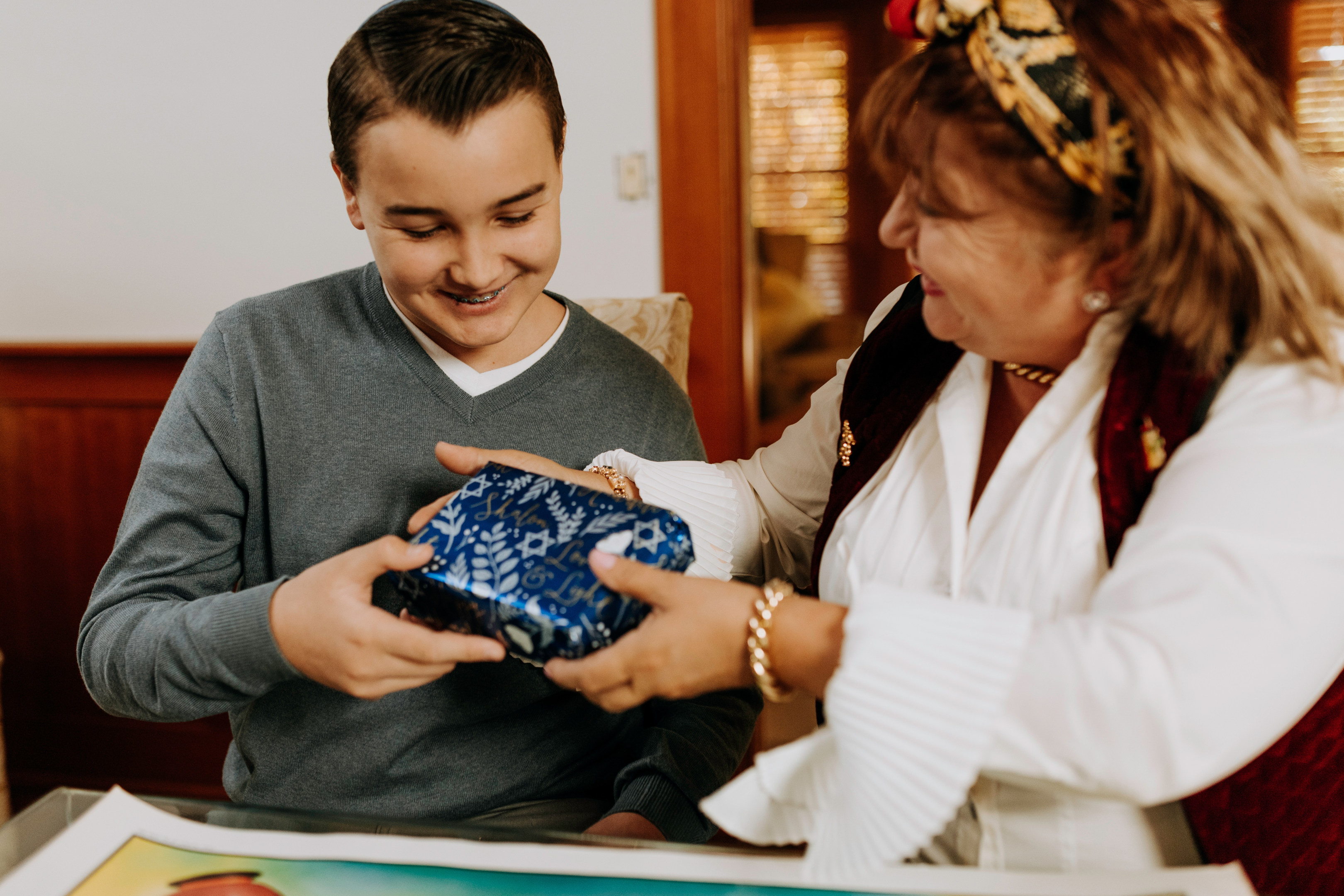Introduction
Get ready for a journey around the world and through time! Gift giving – it's a practice as old as humanity itself, and as universal as the air we breathe. It dances across cultures, waltzes through generations, and sprinkles its magic in every human interaction. This seemingly simple act is our secret language, whispering tales of love, appreciation, and gratitude.

But let's dive deeper! What hidden psychological treasures lie beneath this global tradition? What fuels our quest, driving us to invest time and fortune in the pursuit of that elusive, perfect gift? Fasten your seatbelts, because we're about to find out!
The Art and Science of Gift Giving
Gift giving is a captivating blend of art and science, a delicate dance that requires both an intuitive understanding of human emotions and a strategic approach. It's an act that demands thoughtful consideration and, at times, meticulous planning.
At the heart of this process is the artful aspect. The giver of good gift must tap into their wellspring of empathy and intuition to understand the recipient's likes, dislikes, needs, and desires. They must create a mental portrait of the recipient and use this as their guide in the quest for the perfect gift. This requires keen observation, active listening, and a deep understanding of the person for whom the gift is intended.

Then, there's the scientific side of gifting. This involves a more systematic and analytical approach. The giver needs to consider various factors, such as the occasion—Is it a birthday, an anniversary, or a holiday like Christmas? Each event calls for a different type of gift. A birthday might require something personal and unique to the individual, while a holiday gift could be more general.
The relationship with the recipient also plays a significant role in gift selection. A gift for a spouse may require more intimacy and personal significance than a gift for a coworker. Similarly, a gift for a close friend might require a different level of thoughtfulness compared to a gift for a distant relative.

The giver's personal feelings and emotions are crucial in this process. These emotions can significantly influence the type of gift chosen. For instance, feelings of deep affection and love might lead someone to select a more personal and meaningful gift, while feelings of obligation could result in a more generic choice.
Gift giving is a complex process that beautifully intertwines the emotional and the rational, the artistic and the scientific.
Unraveling the Psychology of Gift Giving
According to Dimitri Mortelmans, a renowned contemporary sociologist, gift giving operates on a principle he calls "debt-balance." This concept suggests that when someone gives a gift, it creates a kind of social debt. The recipient, consciously or unconsciously, feels an obligation to reciprocate at some point in the future. This isn't necessarily a negative thing; instead, it forms part of a cycle of giving and receiving that fosters mutual appreciation and strengthens social bonds.
This cycle can be seen in various social interactions. For example, during birthdays, holidays, and other special occasions, we often give gifts to our loved ones. They, in turn, give us gifts during our special moments. This reciprocal exchange gave gifts helps to reinforce our connections with each other, creating a continuous loop of appreciation and respect.

This cycle isn't just about maintaining balance. It's also about expressing mutual appreciation and fostering a sense of belonging. When we give gifts, we're not just giving physical objects. We're giving symbols of our appreciation, tokens of our affection for romantic partner, and signs of our commitment to the relationship. And when we receive gifts, we feel valued, appreciated, and connected.
It's important to note that while the desire for reciprocation is a significant factor in gift-giving, it's not the only one. Other psychological factors such as altruism, a desire to make others happy, and the joy derived from seeing the recipient's happiness also play a significant role.
The psychology of gift giving is indeed complex, intricately woven with threads of social obligation, mutual appreciation, emotional and social connection,, and personal satisfaction. It's a fascinating area of study that continues to reveal more about our social interactions and our human nature.
Understanding the Gift Giver: A Psychological Perspective
Gift givers are driven by a myriad of motivations. For some, the act of giving gifts provides a sense of pleasure and well-being. Others may view it as a way to strengthen social connections or express their feelings towards the recipient. Yet for others, the act of giving might be a response to societal expectations or norms.
How Emotions Influence the Act of Giving Gifts
Gift-giving is a deeply emotional process, woven together with threads of joy, anticipation, and sometimes, even a dash of anxiety. These emotions don't just accompany the act of giving; they shape it, drive it, and give it meaning.

But the emotional journey of gift-giving doesn't start at the moment of unwrapping. It begins much earlier, during the selection process. The anticipation of the recipient's reaction can be both exciting and nerve-wracking.
Then there's the happiness derived from the act of making someone else happy. This form of vicarious joy—known as 'empathic joy' in psychological terms—is a powerful motivator in gift-giving. When we give a gift that brings happiness to the recipient, we share in that happiness.
And let's not forget the sense of fulfillment and satisfaction that comes from successfully expressing our feelings through giving a gift.
Also check out: "Struggling to find a gift that speaks volumes about your affection? Dive into our carefully curated list of thoughtful presents that are bound to touch his heart. Explore our guide on 'From the Heart: Thoughtful and Sentimental Gifts for Him' and discover the perfect sentimental token of love."
The Social Dynamics of Gift Giving
Gift-giving isn't just about the physical exchange of presents. It's a social interaction that can strengthen relationships and create lasting connections.

Whether it is between family members, romantic partners, or business associates, gift exchanges often carry a deeper meaning beyond the material gifts themselves.
The Impact of Gift Giving on the Gift Giver
The act of giving can have profound effects on the gift giver. Research suggests that giving, whether it's donating money to charity or buying a present for a friend, can boost our own happiness and well-being.

This reinforces the notion that the benefits of generous gift-giving extend beyond the recipient to include the giver.
Also check out: "Looking to celebrate your love without breaking the bank? Check out our guide, 'Budget-Friendly Anniversary Gift Ideas for Couples on a Tight Budget', and discover affordable yet meaningful ways to mark your special day."
Cultural and Personal Factors Influencing Gift Givers
Cultural norms and personal beliefs significantly influence gift-giving behaviors. For example, in some cultures, giving money as a gift on special occasions like birthdays or weddings is common practice.

Personal factors such as a person's values, experiences, and financial capability are also important determinants of how, when, and why they give gifts.
Decoding the Message Behind Gifts
Every gift carries a message. It could be a sign of appreciation, a token of love, a symbol of gratitude, or a way to celebrate a special occasion.
Understanding these hidden messages can enhance the overall experience of giving and the excitement of receiving gifts.
Conclusion: The Lasting Impressions of Gift Giving
Peeling back the layers of gift-giving psychology is akin to embarking on an exhilarating journey, one that reshapes our perspective on life and this timeless tradition. It's far more than a quest for the perfect present—it's about unveiling the profound ripple effects of our actions on others and ourselves. As we waltz through life's grand galas and momentous milestones, let's not forget: the act of giving is, in itself, an enchanting gift wrapped in the cloak of generosity.

